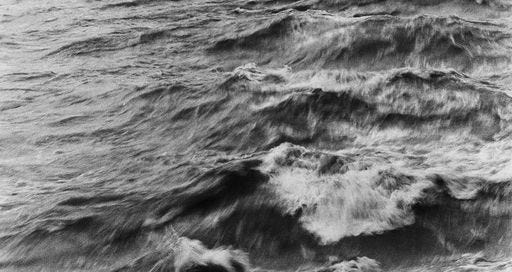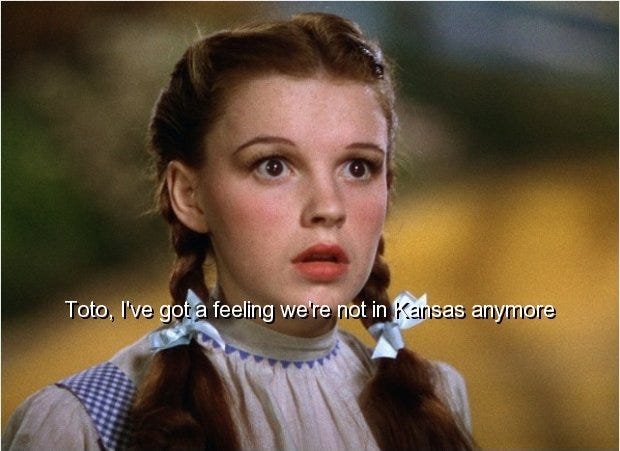On keeping your head above water
A near-death experience and what it taught me about burnout and balance
Two weeks ago, I found myself stranded in the middle of a freezing lake in Arkansas.
I was visiting my family in Memphis, where I’m from originally. My brother loves to kayak and wanted me to join him on an outdoor adventure. He found a lake about forty minutes from my parents’ house. The weather outside wasn’t too cold—lingering between 45 and 50 degrees. We dressed in comfortable clothes, packed lunches, borrowed my neighbor’s kayak, and were off—heading to cross the state line into Arkansas.
It was the end of year when time doesn’t feel real—a couple of days after Christmas, and just before I’d head back to the city. Returning to Memphis after months of being in Brooklyn never fails to feel jolting at first. Life in New York—specifically in December—is typically busy, scheduled, routine, exciting, but also exhausting. Before I’d left for the airport, I was feeling burnout from many areas of my life and the rhythms of keeping up with it all: work, dating, seeing friends, getting exercise, and saving enough time for things I love like reading, writing, cooking, listening to music. My attempt at balancing all of them was failing, and I felt myself shifting into autopilot, going from one thing to the next; trying to get through it so I could finally rest.
In other words, I needed a break from the city, from my life. I needed to slow down.
After a long flight delay, my pug Hamlet and I were headed south. Once the plane ascended from the ground, I peered through the cloudy sky, the bright lights and tall buildings. Just a few hours later, I landed in Memphis—open, quiet, flat. Each time I’ve made this trip, I notice how the two directly contrast each other.
Aside from visiting a couple of friends, my agenda was free, and full of family time. I went to the bookstore with my dad, took Hamlet to run in the open fields of Shelby Park, got to meet my friend’s baby for the first time, saw the Bob Dylan movie with my mom.
Shifting from business in a bustling, exciting place to slower days in the south had left me feeling rejuvenated, but restless—and open to anything remotely thrilling.
So when my brother asked about going with him to kayak, I was in.
Once we launched off from the port in our kayaks, I paddled through the water and started to notice how much chillier it was than I expected. Of course it’s chilly, I thought, it’s winter.
We explored an underwater forest, ate our packed lunches, and kept on paddling. We came across fake ducks in the water and duck hunting sheds, which was when I started thinking about the remoteness of it all. No one—for miles—was around.
I pictured hunters taking their shot, not realizing kayakers were nearby and began to feel a mild panic set in. I pictured Dorothy once she entered the mysterious land of Oz.
Once we decided to paddle back to shore, the temperature dropped a few degrees, and the skies turned grey. The wind picked up, and it was blowing against us, against the direction we were heading.
I continued to paddle, but I started to feel like I was going nowhere. My brother’s kayak was several feet in front of me, and the wind rang in our ears, so we couldn’t hear each other as we tried to communicate.
Panic started to settle into my body once I saw the lake water ripple in small waves toward my boat. Minutes later, the cold water from the waves slowly began to fill the kayak. We were about half a mile from shore, and I was not prepared for this at all.
The current became so strong that my boat was soon going to tip, and I had to think fast, counting on my instincts. My brother was able to finally get close to my boat when I felt it tip, and immediately threw him the bag with my phone in it.
My body plunged into the frigid lake. The shock of the cold water had me gasping for air, moving my limbs to stay above water.
For a moment, I thought: Is this really how I’m going to go? In the middle of a lake in Arkansas?
My brother threw me the life jacket, then went to retrieve my sinking kayak. Since the wind had picked up significantly and there was a small chance I’d be able to get on the boat, I had one option: to swim to shore.
I swam. And swam. And kept swimming. I thought of the possibility of hypothermia, but my body was in this fight with me, and was quickly working to warm up.
I’m not sure how long I was swimming—but it was probably close to an hour, and long enough. In the moment, I couldn’t process the fact it was happening to me and had to keep moving.
As I relied on my limbs to keep moving, my body to swim, it all felt like a metaphor for how my previous year had been spent: staying out of my comfort zone, but failing to slow down. Saying yes too often. And in result, keeping my head just above water.
Once I reached shore, I could stop swimming and my feet were comforted by the feeling of support of the ground beneath them. I climbed through muddy water and tried not to think of the possibility of snakes or any other creature lurking below the surface. I didn’t die. I could keep moving.
Once we had gotten on land and to the car, I was ready to come home, to New York, to the life I had taken a brief break from.
Back at my parents’ house, I took a hot bath and thanked the universe that I didn’t have to leave it that day.
It was only when I tried to keep my head above water that I realized I could drown at any moment. It took being completely engulfed in water to think more about how and why I’d gotten there in the first place.
This wasn’t just a lesson in kayaking safety (though I won’t be venturing into a remote lake in winter without better gear again). It was a reminder to stop running on autopilot. To stop testing the limits of how far I can go before something tips.
Heading into the new year, I’m moving with more intention—swimming at my own pace, in warmer waters, choosing how I expend my energy. The goal isn’t just to stay afloat but to find joy in the movement, the pauses, and the moments in between.
Wherever you are—in the world or in life—I hope you create space to not just survive, but thrive. To paddle toward what’s most important, at your own pace, and with a clear sense of direction.






My gosh this is terrifying! Probably not the reset you had anticipated! Glad you made it out safe
Oh Jess! What a story. I am so glad you made it to shore safely and I love how you've seen this perfect metaphor in the experience. Thanks for eloquently putting it in words and sharing with us, your followers. But dang that you had to go thru that. Unreal!